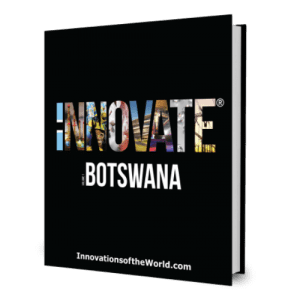With a staff complement of close to 10 employees on a full-time basis, Litter Kings is a pronounced example of a local business that started from the bottom and relentlessly worked hard to ensure growth and sustainability of the company over the years.

The company started running in 2013 when its founders, two struggling 22-year-old Batswana men decided to get their “hands dirty” by going into the waste business. The two had completed their University studies and were struggling to find employment. At the time youth unemployment rates in Botswana were reported to be close to 40%.
The initial concept for Litter Kings was simply collection of waste material and where and how to dispose of it for a fee. When Litter Kings entered the Waste industry, Gaborone city council was struggling with consistent and reliable waste collection from domestic households. The barriers of entry into the industry at the time were very minimal.

At inception stage, the founders: Bonani Busani (33 years old) and Ogorogile Bahuma (34 years old) decided to take a risk by leasing a small truck even though they had zero capital. At the time, they couldn’t afford to employ anyone so they started off by actually carrying out the hard labour of private residential collection themselves. The hard labour was strenuous for the pair but the experience of being hands-on opened their eyes to discovering and exploring new and innovative methods that they could apply in the waste value chain.

“Most of the collections at that stage were garden waste, we then came up with the idea to recycle the waste to create compost, which we would then sell to local nurseries and our clients. We would take branches that couldn’t be composted and donate them as firewood in the slums of the city for people to cook with or generate warmth during the winter season,” said Busani.

“Due to the high transportation cost to the local landfill, recycling became part of our daily thinking activities. We enticed our clientele to separate waste at home and at their establishments. We would then collect the waste and sell to the large recyclers,” said Bahuma.

“We are currently in the process of expanding our operation to complete the value chain through manufacturing using waste material. We are also happy that the company is supporting 10 or more families by creating employment opportunities to unemployed breadwinners,” said Busani.













